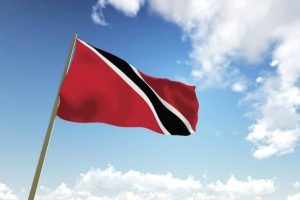 Trinidad and Tobago’s proposed new budget plan appears to get into gears. Apart from discussing the gambling tax hike, it was also proposed an enhanced nationwide tax collection system, which is to function like a well-oiled machine. Responding to articles and editorials in the Guardian Newspaper regarding the tax collection system, Finance Minister Colm Imbert commented that the current system is not efficient enough and the problems which the government meets in collecting taxes should be publicized as these are of national importance.
Trinidad and Tobago’s proposed new budget plan appears to get into gears. Apart from discussing the gambling tax hike, it was also proposed an enhanced nationwide tax collection system, which is to function like a well-oiled machine. Responding to articles and editorials in the Guardian Newspaper regarding the tax collection system, Finance Minister Colm Imbert commented that the current system is not efficient enough and the problems which the government meets in collecting taxes should be publicized as these are of national importance.
Earlier this month, Finance Minister Colm Imbert introduced the government’s budget for 2017-2018, which included a dramatic tax hike on lottery winnings as well as doubling fees and taxes imposed on casino operators. The news scared some casino operators, who announced that they are to shut their gambling venues in case the government does not draw back from the tax increase, while others were protesting in front of the Parliament.
Despite all efforts, which the casino-involved people invested in convincing the government to reconsider its decision, it became clear that the government is not really willing to back off from its position and the tax increase will come into effect from the beginning of the next year. The dramatic increase, though, raised yet another concern regarding the compliance rates among the gambling operators.
Earlier this week, the media agency Guardian Newspaper posted articles and editorials, in which it is claimed that the government should not comment on issues such as the low compliance rate of the casinos regarding the payment of taxes or the upswing of the illicit gambling sector, but simply collect the taxes and to work on weeding out the unlawful gambling practices.
Power of Unity in Trinidad and Tobago’s Tax Collection System
 Speaking of the aforementioned claims, Finance Minister Colm Imbert stated that the government is not the only body, which is responsible for the tax collection and solving any problems with it is mutual responsibility. He noted that the government has nothing to do with the enforcement of the law and hence, it is not right to think that the government is the only institution, which needs to look for a solution to the problem of non-compliance in the gambling industry. The Minister explained that the Revenue Authority, which is to be responsible for the tax collection is still in process of formation. In the meanwhile, the government should join forces with the Board of Inland Revenue and the Trinidad and Tobago Police Service to ensure the proper collection of taxes.
Speaking of the aforementioned claims, Finance Minister Colm Imbert stated that the government is not the only body, which is responsible for the tax collection and solving any problems with it is mutual responsibility. He noted that the government has nothing to do with the enforcement of the law and hence, it is not right to think that the government is the only institution, which needs to look for a solution to the problem of non-compliance in the gambling industry. The Minister explained that the Revenue Authority, which is to be responsible for the tax collection is still in process of formation. In the meanwhile, the government should join forces with the Board of Inland Revenue and the Trinidad and Tobago Police Service to ensure the proper collection of taxes.
As it can be recalled, the Joint Select Committee found out that there are 2,000 bars in Trinidad and Tobago, which feature gaming devices and 5,000 more bars, which are suspected to offer similar gambling devices, without being registered. Mr. Imbert introduced these figures, while the Budget Debate was underway, but the Amusement Gaming Association of Trinidad and Tobago disagreed with the information, claiming that the figures are incorrect. The Minister explained that the figures are more than accurate. Based on the data, it was even estimated that the government loses at least $90 million in tax revenues and the money hole should be eliminated in a timely manner.



















